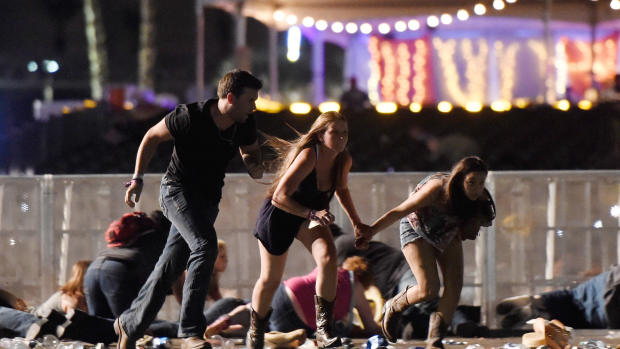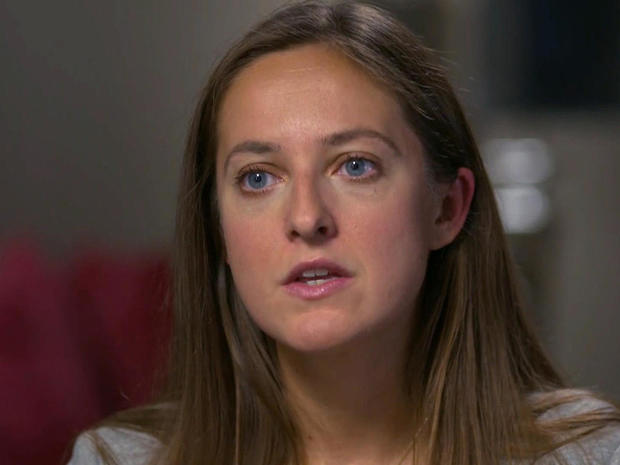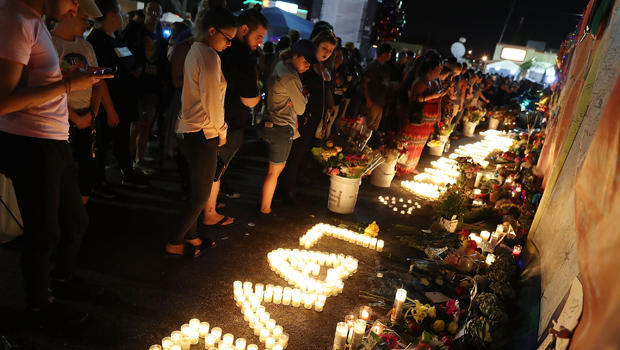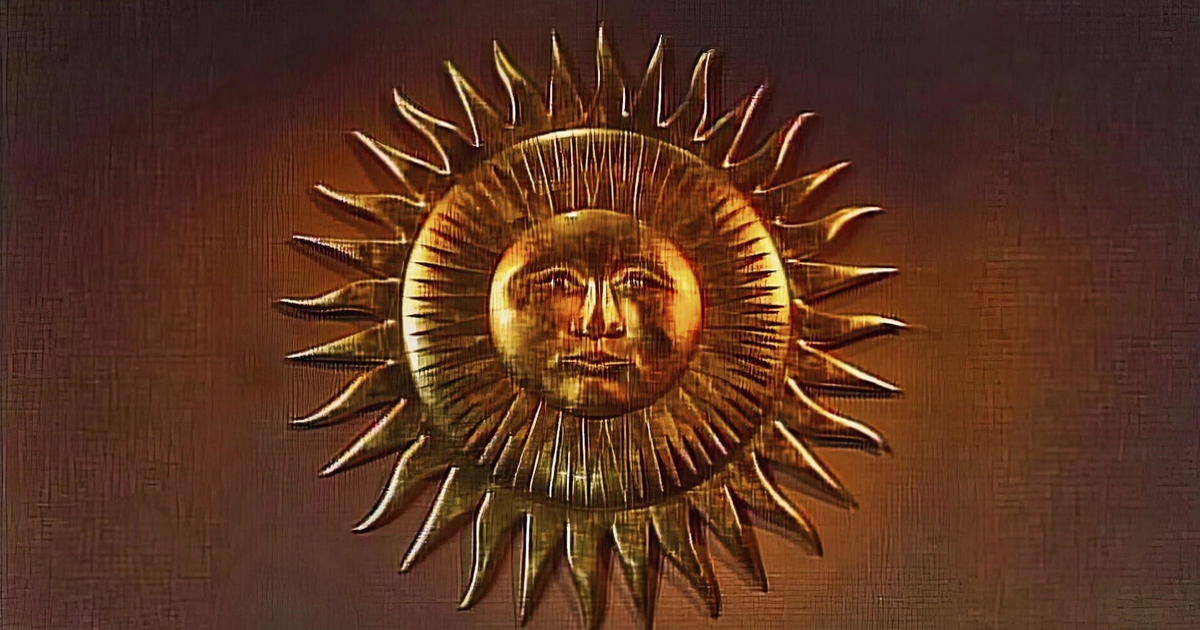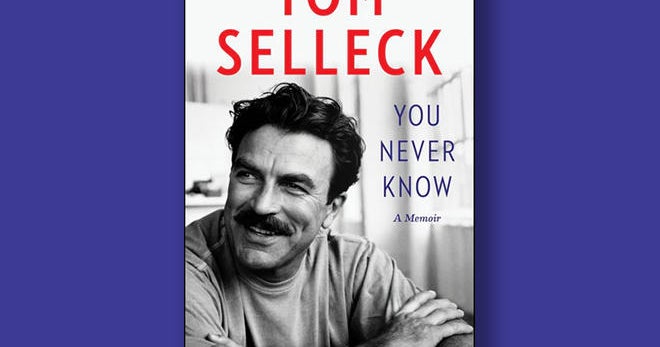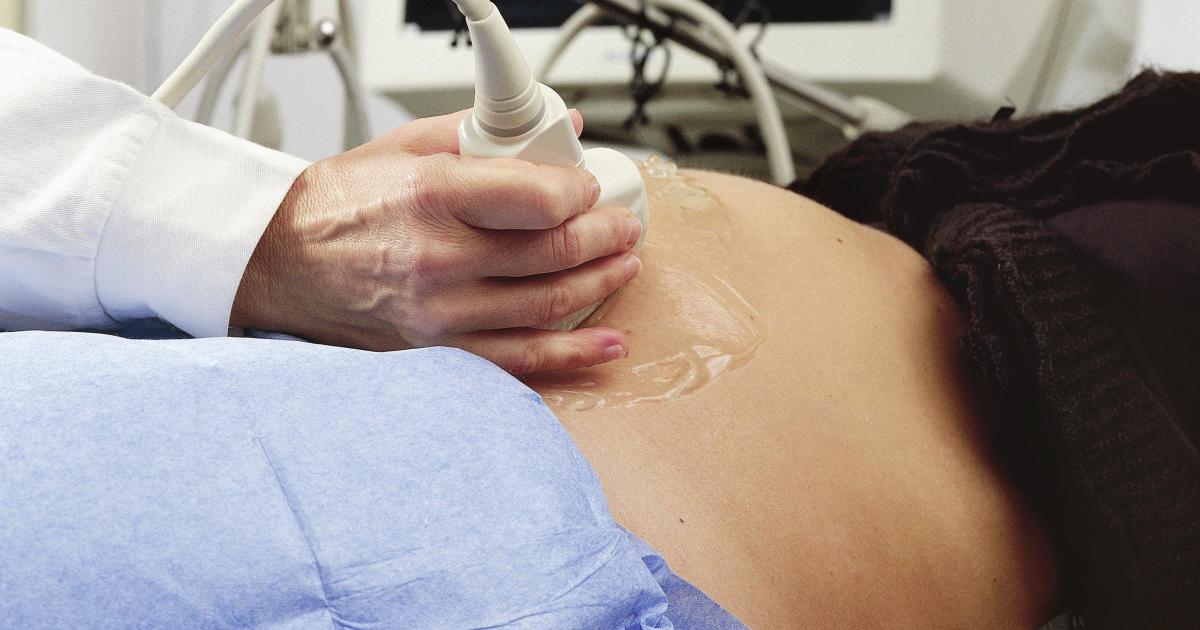A mass shooting survivor's story
If anyone is qualified to offer counsel and comfort to the thousands who narrowly escaped death in last weekend's Las Vegas shooting, it would be someone who's been through a similar close call. Lee Cowan has a survivor's story:
Kristina Anderson was 19 years old when she was carried out of her French class at Virginia Tech in April 2007 -- shot twice in the back, and once in the foot by a troubled student who killed 32 others, and wounded 16.
Virginia Tech was the nation's deadliest mass shooting -- until it lost that grim distinction to Orlando last year … which in turn was overtaken by Las Vegas this past Sunday night.
"Your brain is numb for about two years, I would say," Anderson said. "You're kind of fuzzy. And memories are not fully-formed because your brain is going through a sense of, 'Wait, am I safe yet? Am I okay?'"
"The hard parts are not always immediately after the shooting or the tragedy, because people reach out and you have a lot of attention from the media and local resources," she said. "The hard part is nine months afterwards. There's a level of fear and loneliness that's really hard to prepare for."
GALLERY: Las Vegas shooting victims
From her hospital room, healing was first on the agenda -- the same task ahead for so many survivors in Las Vegas. But physical and mental healing, she warns, can be on vastly different schedules.
"For the first five years after the shooting, I thought about the event every single day. Something would trigger, and I would lose anywhere from ten minutes to 30 minutes, depending on how severe that trigger was."
"You would just break down?" Cowan asked.
"It's not always even breaking down. Sometimes you just disassociate with the place. So I would almost feel like I would rise up over the situation, so if in a classroom, I would tune out of the conversation. My heart would rise, my pulse would start beating, and the worst part about this was that I didn't know that was happening -- someone walked in late and that scared me, or the door slammed and that scared me. I couldn't connect the why."
Years of working with a therapist helped. But she's found the most help from those who've been there -- the survivors of other mass shootings, all members of a club no one willingly joins, but its membership continues to grow.
"We talk about how awkward other people are around us, or how funny sometimes certain media questions are," Anderson said. "And we bounce off ideas. Have you ever had this? How did you respond to this? Or This person said this. Because sometimes people in your close family and friends also don't do well with what happened to you, and so they may say things that are actually really hurtful or do things that are not really thoughtful, unintentionally."
Especially around anniversaries, Anderson says. Hers is every April 16th. Those can be the hardest of all.
"I mentally start to be kinder to myself in the month of March," she said. "So I exercise more, I try to sleep more, I try to be a little bit kinder to myself in my work commitments."
"Just because you knew what was coming was going to be hard?"
"I'm just naturally more anxious the entire month of April, because your mind knows that something is coming and your body starts to feel it," she said. "So you're more tired, I'm more reactive. I'm much more emotional because I'm brought back to this pretty painful reminder that I almost died.
"And you're really confronted with a sense of, Am I doing the things for the right reasons? Have I been really great to my parents lately? Because you know, ten years ago, they almost lost me."
Using money that arrived tucked inside get-well cards a decade ago, Anderson started a foundation. She lives in Seattle now, and criss-crosses the country speaking about school and workplace safety.
That's how she's coping.
She says the Vegas survivors -- some 22,000 of them -- will find their path, too: "The hard part is accepting it, that you'll never go back to how you were that day before your shooting."
Cown asked, "Is there that obligation that people are going to feel that if they did survive, that they should talk about it, or they should do the kinds of things that you're doing?"
"The obligation is to live a better life," she smiled. "The obligation is that you've lived and you've felt, you've seen the fact that not everyone gets to go home to their children and to their spouses, and that life is short. And that the best way you can honor what happened is to be authentic to yourself."
For more info:
